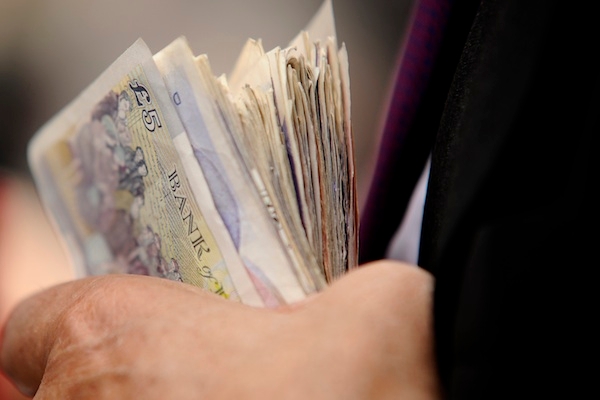‘Become an ISA millionaire in 24 years’, the press release breathlessly announced. A millionaire? In 24 years? Yes please.
In 24 years I’ll be 66 and thinking of retiring. What could be better than a cool million to fund my latter years? So I read on.
All I, and other savers, have to do is stash away the maximum ISA allowance each year, according to the fund manager Fidelity International. That’s £15,240 for the 2016/17 tax year which kicks off on Wednesday, and £20,000 plus a year from 2017 onwards.
George Osborne announced the new bigger ISA allowance in the Budget last month. It’s normal procedure for the limit to rise with inflation each year so Fidelity has assumed the limit will increase by 2 per cent each year. It’s also assumed savers invest the money in a fund with annual 5 per cent growth. Picking a fund is probably the easy bit: what I want to know is where the average person will find a spare £20,000 every year?
According to the Office for National Statistics, the average salary in the UK is £27,531 which means the average worker takes home about £21,888. With the best will in the world, living in a tent and shopping in Lidl, saving £20,000 is impossible. Even workers earning twice the UK average would have to save half their take-home pay in order to accumulate £20,000 a year.
Fidelity isn’t the only company churning out statistics that are completely meaningless to anyone not raking it in in the City. Comparison site Moneysupermarket was quick to announce that when the new personal savings allowance (PSA) comes into effect on 6 April, savers could save up to £69,000 before paying tax on the interest. £69,000? Saving £20,000 a year suddenly sounds relatively achievable.
The PSA means that, from Wednesday, basic rate taxpayers will be able to earn up to £1,000 interest a year on their savings without having to pay any tax on that money. Higher rate tax payers will be able to earn £500 interest tax-free. Those on the 45 per cent additional tax rate do not receive a personal savings allowance.
The figures mean that if the money was stashed in the best instant access account – RCI Bank’s Freedom account which pays 1.45 per cent – a basic rate taxpayer could save £69,000 before paying tax and a higher rate taxpayer £34,482.
Given that, by the very fact that they’re paying basic rate tax, basic rate taxpayers don’t earn more than £43,000 before tax, it’s a mystery to me how, bar the occasional lottery win or the odd inheritance, they will find more than twice this amount to squirrel away.
But nonsense press releases aside, the raft of changes coming to the savings market over the next year or so are generally a good thing. The new Lifetime ISA for under 40s, which includes a 25 per cent government bonus, will undoubtedly get young people to save money. And pretty much scrapping tax on interest on savings for the majority is long overdue.
But spouting ridiculous meaningless figures only relevant to the top-earning few will do nothing to inspire people to save.
Emma Lunn is a freelance personal finance journalist






Comments